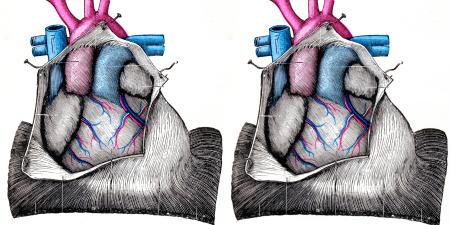Opinion 8.12, "Patient Information" notes that, "Patients have a right to know their past and present medical status and to be free of any mistaken beliefs concerning their conditions." It is often difficult for physicians to satisfy the ethical duty to inform patients when a medical intervention has produced unexpected outcomes as a result of poor judgment, human error, or unknown causes. Disclosure can also be difficult when physicians or other medical practitioners have misinterpreted or misreported diagnostic test results. As Opinion 8.12, "Patient Information," makes clear, failure to disclose any such problems undermines the ethical responsibility to respect patient autonomy.
Patients have a right to know their past and present medical status and to be free of any mistaken beliefs concerning their condition. Situations occasionally occur in which a patient suffers significant medical complications that may have resulted from the physician's mistake or judgment. In these situations, the physician is ethically required to inform the patient of all the facts necessary to ensure understanding of what has occurred. Only through full disclosure is a patient able to make informed decisions regarding future medical care.
[The physician's] ethical responsibility includes informing patients of changes in their diagnoses resulting from retrospective review of test results or any other information. This obligation holds even though the patient's medical treatment or therapeutic options may not be altered by the new information.
Concern regarding legal liability which might result following truthful disclosure should not affect the physician's honesty with a patient.
The obligation to uncover and disclose information regarding an unexpected harm or an inaccurate diagnosis arises from physicians' responsibility to act as patient advocates and to promote the patient's best interests, regardless of competing personal interests.
Some contend that the doctrine of "therapeutic privilege" permits a physician to withhold information that, if disclosed, could cause psychological distress or could undermine trust and lead the patient to rash decisions that would result in even greater negative effects. In the rare instances where this may be a concern, the physician should involve appropriate members of the patient's family, or other advocates, and consult a disinterested party, such as a trusted colleague or member of the ethics committee. Therapeutic privilege should not be invoked (or more accurately, hidden behind) merely as a means to avoid disclosing a diagnostic or medical error or an unexpected harm.
Communication about diagnostic or medical errors or unexpected harms should be made with tact, including an expression of concern and regret. Opinion 8.121, "Ethical Responsibility to Study and Prevent Error and Harm," explains how physicians might express their concern over unexpected harms to patients; "An expression of concern need not be an admission of responsibility. When patient harm has been caused by an error, physicians should offer a general explanation regarding the nature of the error and the measures being taken to prevent similar occurrences in the future." Many times, this explanation will preserve trust and will allow continuity of care with the same health care team. Such communication is most important when decisions need to be made promptly in response to the harm that has occurred. However, if the disclosure injures the patient's trust in the physician so severely that the patient prefers to obtain subsequent care elsewhere, the physician has a responsibility to assist the patient in obtaining continuing care.
If a physician who is responsible for an error or harm is unwilling or unable to acknowledge his or her responsibility to the patient, a neutral party should communicate the information to the patient. Alternately, a health care professional may discover an error or harm that a patient experienced under someone else's care. It is clear that even if a physician is not responsible for the harm, that physician still has the ethical obligation to be honest and forthcoming with information pertaining to the patient.



